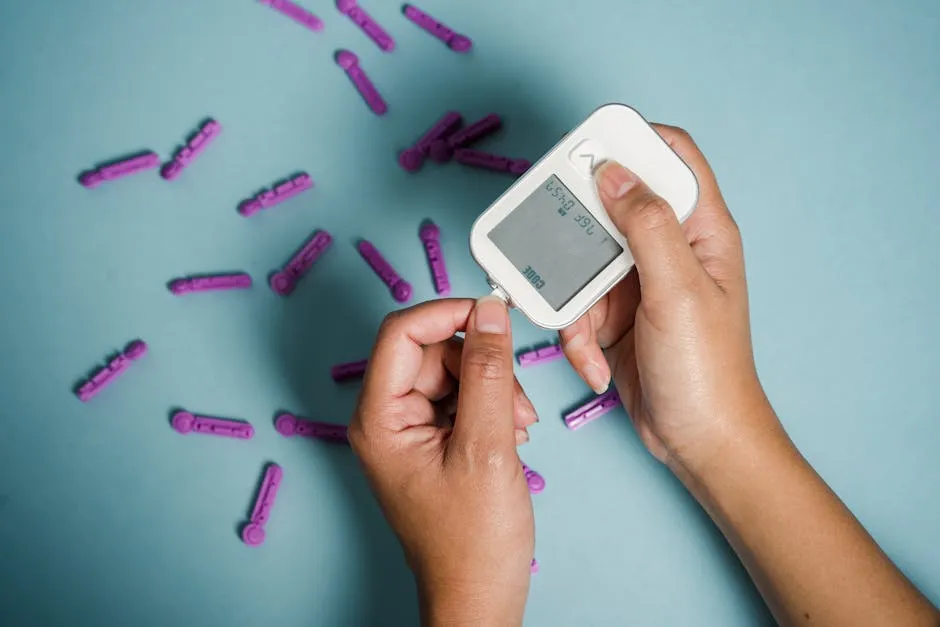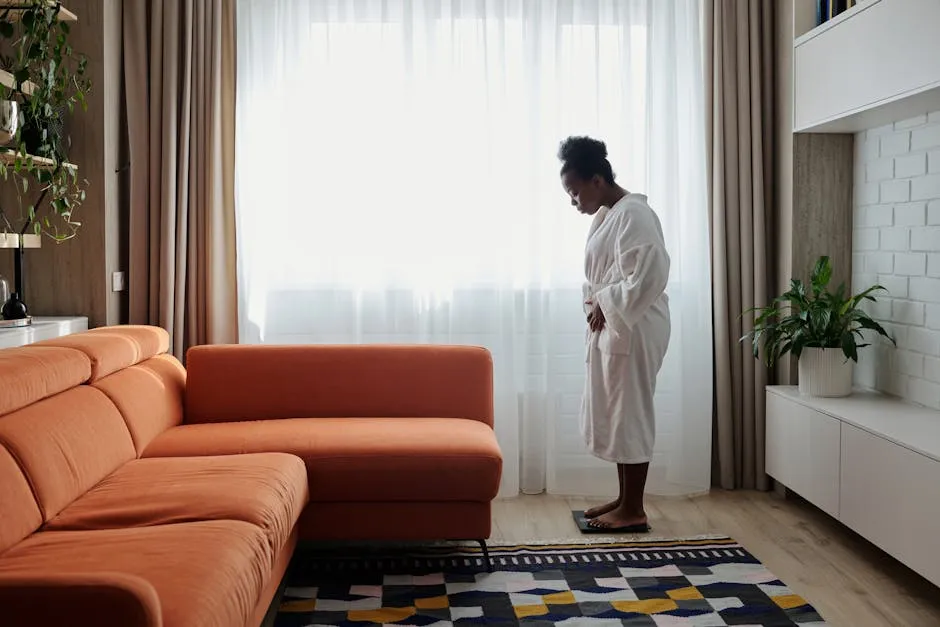
Why Am I Peeing So Much? Understanding the Causes and Solutions
Introduction
Frequent urination can feel like a relentless bathroom dash, leaving you wondering why your bladder is suddenly so needy. Have you ever found yourself contemplating whether you’ve developed a superpower for emptying your tank? Not quite! While it might seem amusing at first, the truth is that frequent urination can disrupt your daily life and signal underlying health issues.
Imagine you’re in the middle of a movie, popcorn in hand, and then—bam!—the urgent need to pee hits you like a ton of bricks. It can be quite the buzzkill! In this guide, we’ll explore the reasons behind your frequent trips to the restroom, helping you debunk myths and understand when it’s time to seek medical advice.
So, let’s jump into the world of bladders, hydration, and the occasional awkward bathroom encounter! You might be surprised by what you learn.
Summary of Key Points
Frequent urination, also known as polyuria, is defined as the need to urinate more than eight times a day or waking up multiple times at night to urinate. This can be caused by a variety of factors, including lifestyle choices, medical conditions, and certain medications.
1. Common Causes: Conditions such as diabetes, urinary tract infections (UTIs), and overactive bladder are leading culprits. Lifestyle factors, including excessive caffeine or alcohol consumption and high fluid intake, can also increase frequency.
2. Underlying Health Issues: More serious issues like prostate enlargement in men, interstitial cystitis, or even bladder cancer can lead to frequent urination. It’s essential to recognize accompanying symptoms, such as pain or blood in the urine, which necessitate immediate medical attention.
3. Diagnosis and Treatment: A healthcare provider may ask for a detailed medical history, conduct tests, and suggest lifestyle changes or medications tailored to the underlying cause.
4. When to See a Doctor: If frequent urination interferes with your daily activities or is accompanied by concerning symptoms, it’s crucial to consult a healthcare professional.
By understanding the reasons behind frequent urination, you can take steps to manage the condition effectively or seek appropriate treatment. It’s time to take control!

The Science Behind Frequent Urination
Understanding Urination
– Basics of the Urinary System: The urinary system is a well-oiled machine. It comprises the kidneys, ureters, bladder, and urinary tract. The kidneys filter waste from the blood, turning it into urine. Urine travels down the ureters to the bladder, where it’s stored until you’re ready for a quick pit stop. When the bladder fills, nerve signals alert you, prompting the need to urinate.
– Normal Urination Patterns: For healthy adults, urinating 6-8 times a day is pretty standard. But hey, we all have our quirks! Some may find themselves making more frequent trips to the restroom. If you’re getting up more often than a toddler who just discovered juice boxes, it’s time to investigate!
And speaking of investigation, keeping track of your bathroom habits can be a game changer. Consider using a Bladder Diary Journal to keep track of your fluid intake and urination patterns. It’s like a diary for your bladder’s deep thoughts!

Common Reasons for Increased Urination
1. Overactive Bladder (OAB)
OAB is the life of the party when it comes to frequent urination. This condition is characterized by an intense urge to pee, often resulting in involuntary leakage. Symptoms include needing to urinate more than eight times during the day and waking up at night to go. This can really throw a wrench in your daily plans, making social gatherings less enjoyable. Imagine trying to hold a conversation while mentally mapping out the nearest restroom!
But fear not! Strengthening your pelvic floor muscles through Kegel Exercise Equipment can help regain control. It’s like giving your bladder a personal trainer!

2. Diabetes
Diabetes has its fingers in many health pies and frequent urination is one of them. Both type 1 and type 2 diabetes can lead to high blood sugar levels. When blood sugar soars, the kidneys kick into high gear, filtering out excess glucose. This process creates more urine, leading to the need for more bathroom breaks. It’s like your body is saying, “Hey, let’s flush out this sugar!”
If you’re managing diabetes, consider using a Home Blood Sugar Testing Kit to keep tabs on your levels. Better safe than sorry!

3. Urinary Tract Infections (UTIs)
UTIs are notorious for making you feel like you have to pee all the time. They cause inflammation in the bladder, leading to increased urgency and often painful urination. Symptoms include burning sensations and cloudy urine—definitely not the “golden” experience you want! Women, unfortunately, are more prone to UTIs, thanks to their anatomy. So if you feel like you’re doing the bathroom cha-cha, a UTI might be the culprit.
To combat this, consider stocking up on Urinary Tract Infection Relief Products. They’re like a superhero for your bladder!

4. Prostate Issues in Men
Men, listen up! The prostate can be a troublesome gland. Benign prostatic hyperplasia (BPH) is a common condition where the prostate enlarges, squeezing the urethra. This can lead to a weak urinary stream and frequent urges to urinate. If you’re finding it hard to empty your bladder fully, it’s time to chat with your doctor. Ignoring it won’t make it disappear—trust us!
For those concerned about prostate health, consider incorporating Prostate Health Supplements into your routine. Your prostate will thank you!

5. Lifestyle Factors
Sometimes, it’s just your daily habits causing you to run to the restroom. Caffeine and alcohol can act as diuretics, making you pee more. Ever noticed how that second cup of coffee leads to a sprint to the bathroom? Additionally, what you eat matters! Spicy foods and citrus can irritate the bladder, leading to more frequent urges. So next time you indulge in that spicy taco feast, you might want to keep an eye on your bathroom schedule!
To help with hydration, consider a Hydration Reminder Water Bottle. Stay hydrated, but do it wisely!

Additional Causes of Frequent Urination
1. Pregnancy
Pregnancy can feel like a never-ending need to pee. As the baby grows, it puts pressure on the bladder, leading to increased urination. Hormonal changes also play a role in this delightful situation. If you’re expecting, just remember that this is a temporary phase.

2. Neurological Conditions
Conditions like multiple sclerosis can disrupt nerve signals that control the bladder, leading to increased urgency. The bladder may not respond as it should, causing frequent trips to the restroom.

3. Medications
Certain medications, especially diuretics, increase urine production. If you’re on a “water pill,” it’s no surprise you’re making frequent bathroom visits. Always consult your doctor if you notice changes in your urination patterns after starting new medications.

4. Bladder Conditions
Conditions such as interstitial cystitis and bladder stones can lead to frequent urination. Interstitial cystitis, often painful, causes a constant urge to go, while bladder stones can create discomfort and increased frequency. If you suspect either, seeking medical advice is essential.
Understanding why you might be peeing so much is the first step in tackling the issue. Whether it’s a lifestyle choice or a sign of something more serious, knowledge is power!

Diagnosis of Frequent Urination
When to Seek Medical Help
Frequent urination can be more than just an inconvenience; it may signal a health issue. If you notice yourself rushing to the bathroom more than eight times a day or waking up multiple times at night, it’s time to pay attention. Signs that warrant a medical check include blood in your urine, severe pain during urination, or a persistent urge despite an empty bladder. Tracking your symptoms and urinary patterns is essential. Jot down when you pee, how much you drink, and any accompanying discomfort. This information is gold for your healthcare provider, helping them pinpoint the issue faster than you can say “bathroom break!”

Diagnostic Tests
Medical evaluation often begins with a thorough discussion of your symptoms and medical history. Your doctor may conduct various tests to get to the bottom of your frequent urination. A urinalysis is a common first step, allowing them to check for infections, blood, or unusual substances in your urine. An ultrasound might be used to visualize your bladder and kidneys, ensuring everything looks shipshape. Additionally, a voiding diary can be invaluable. This diary records your fluid intake and urination frequency, providing insights that help identify patterns or triggers, leading to a more accurate diagnosis.

Treatment Options
Lifestyle Modifications
Taking control of your urinary frequency starts with lifestyle changes. First on the list? Dietary adjustments. Reducing bladder irritants like caffeine, alcohol, and spicy foods can significantly help. Think of it as a favor to your bladder! Hydration management is also crucial. While staying hydrated is vital, try to limit fluid intake in the hours leading up to bedtime. This simple strategy may help you enjoy uninterrupted sleep without those pesky midnight bathroom trips.
And if you ever find yourself needing to unwind after a long day, consider treating yourself to some Herbal Tea for Bladder Health. It’s a soothing way to relax and support your bladder at the same time!

Medical Treatments
If your frequent urination is linked to an underlying condition, medical treatments may be necessary. Depending on the cause, your doctor might prescribe medications that target specific issues. For instance, anticholinergic drugs can help manage overactive bladder symptoms, while antibiotics are essential for treating urinary tract infections. Behavioral therapies, like bladder training, can also be effective. This involves gradually increasing the time between bathroom visits, helping your bladder hold more urine. Kegel exercises are another fantastic option. These strengthen pelvic floor muscles, giving you better control over your bladder and reducing the urge to go.
To enhance your exercise routine, you might consider investing in a good Yoga Mat. A stable base can help you focus on those Kegel exercises!

Surgical Interventions
In some cases, surgery might be the best option, especially for severe conditions like benign prostatic hyperplasia (BPH) in men or bladder tumors. Surgical procedures can relieve pressure on the urethra or remove obstructions, making it easier to urinate. If your doctor suggests surgery, don’t shy away! It’s about regaining your quality of life and saying goodbye to frequent bathroom trips. Remember, taking action can lead to a more comfortable and enjoyable daily routine.
Conclusion
Frequent urination can be both a nuisance and a signal from your body that something may need attention. It’s like your bladder is sending you an RSVP to an event you didn’t plan! By understanding the various causes—from everyday lifestyle choices to underlying health conditions—you can take proactive steps to manage your bladder health effectively.
First, consider your daily habits. Are you guzzling caffeine like it’s going out of style? That could be your culprit! High fluid intake, especially before bed, can lead to sleepless nights filled with bathroom dashes. But, it’s not just about what you drink. Conditions like diabetes, urinary tract infections (UTIs), and prostate issues can also contribute to frequent trips to the restroom.
And don’t forget to pamper yourself! A cozy Comfortable Lounge Pants can make those bathroom breaks feel a little less frantic!
If you find that your frequent trips to the bathroom are affecting your quality of life, don’t hesitate to seek medical advice. Doctors can help you navigate this often-embarrassing issue with grace. Remember, you’re not alone in this; millions experience similar challenges. Knowledge is power, and solutions are within reach!
FAQs
How can I tell if my frequent urination is serious?
If you’re constantly running to the bathroom but aren’t producing much urine, it’s time to pay attention. Symptoms requiring immediate attention include blood in your urine, severe pain while urinating, or waking up multiple times at night to go. These could signal infections or more serious conditions, so don’t ignore them!
Is frequent urination normal during pregnancy?
Yes, frequent urination is quite common during pregnancy. As your baby grows, it puts added pressure on your bladder. Hormonal changes also play a role. If you experience pain or blood in your urine, consult a healthcare provider to rule out infections.
Can certain foods cause frequent urination?
Absolutely! Common dietary triggers include caffeine, alcohol, and spicy foods. These can irritate your bladder and increase the urge to go. Keeping a food diary might help you identify your personal culprits.
Will my frequent urination resolve on its own?
It depends! If it’s linked to lifestyle changes, like drinking less fluid before bed, you might see improvement. However, if an underlying health issue is at play, addressing it is key to finding relief. Consulting a doctor can provide clarity and direction.
When should I see a urologist?
If frequent urination disrupts your daily life or is accompanied by symptoms like pain, blood in your urine, or fever, it’s time to see a urologist. They specialize in urinary tract issues and can help pinpoint the cause and recommend appropriate treatments.
Please let us know what you think about our content by leaving a comment down below!
Thank you for reading till here 🙂
All images from Pexels




